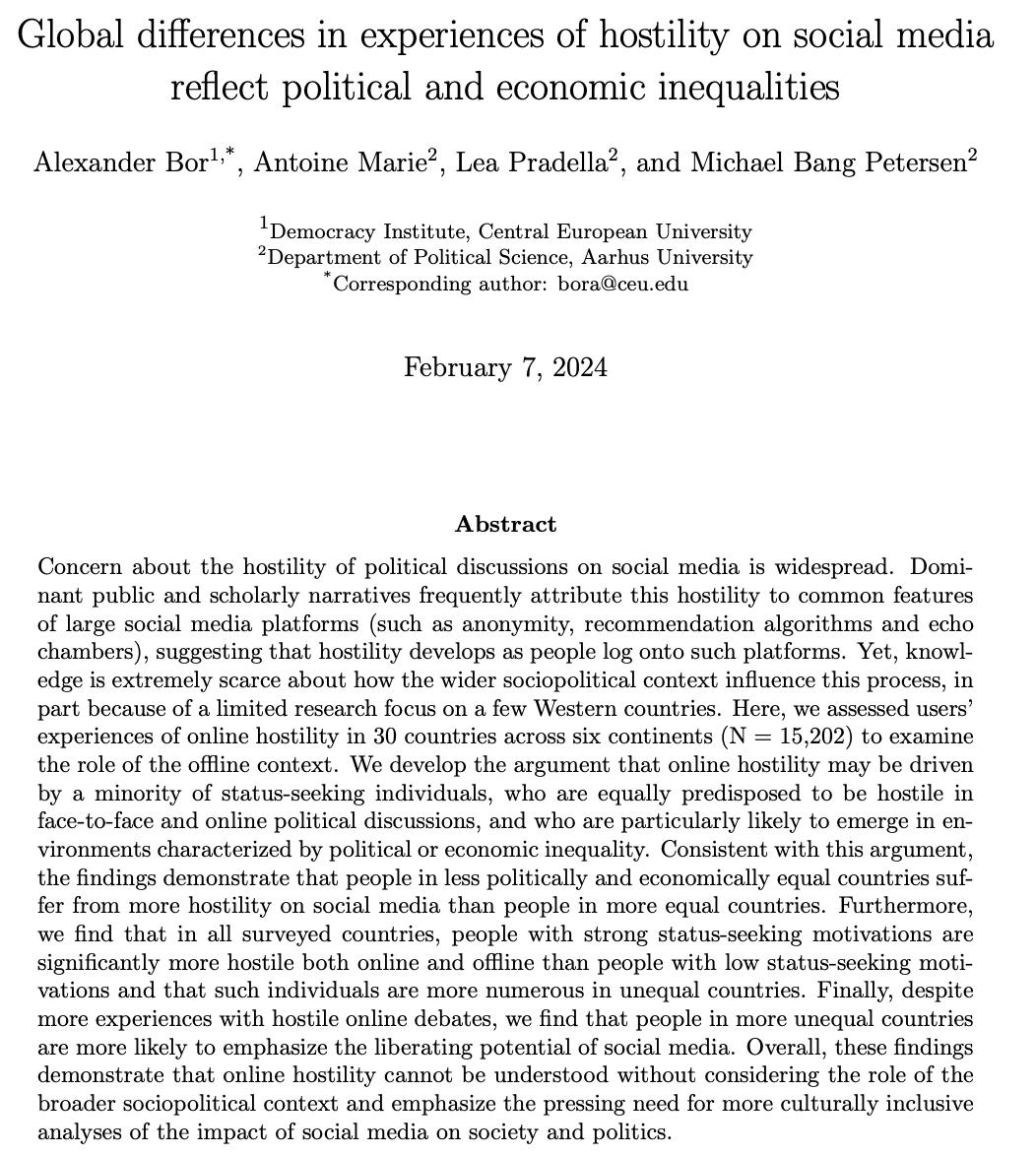Today, Denmark lifted *all* restrictions, while cases are soaring.
The international reaction: Disbelief.
I am leading the largest Danish project on pandemic behavior & I am advising the gov.
Here is why Danes are still supportive. And what may be learned from this.
🧵(1/19)
The international reaction: Disbelief.
I am leading the largest Danish project on pandemic behavior & I am advising the gov.
Here is why Danes are still supportive. And what may be learned from this.
🧵(1/19)
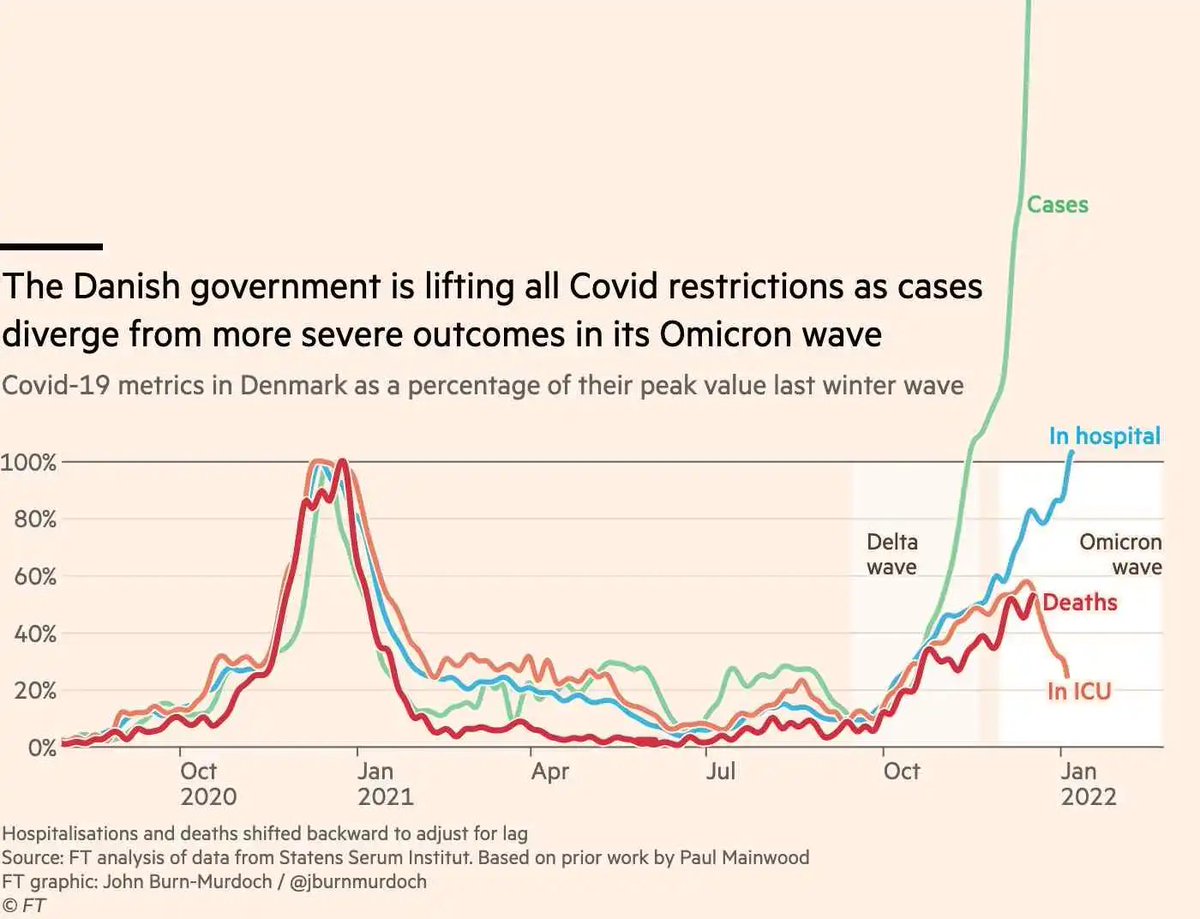
The graph is from here: ft.com/content/037a3a…. It shows the complexity of the epidemic situation. Cases are extremely high, hospitalizations are rising and deaths are rising slowly too. But people in ICUs are dropping. (2/19) 
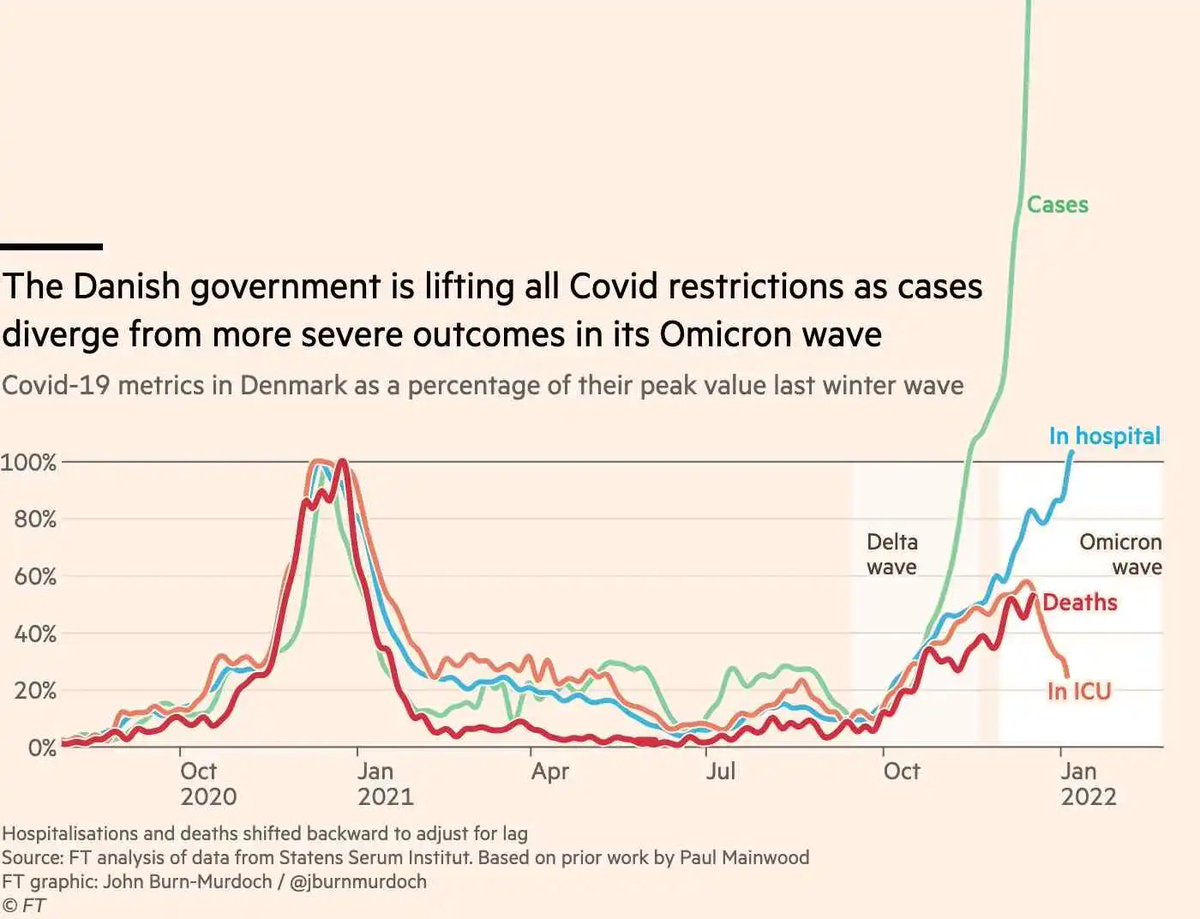
Despite this, a clear majority of the public supports removing all restrictions (nyheder.tv2.dk/samfund/2022-0…). A minority (28 %) is concerned. (3/19) 
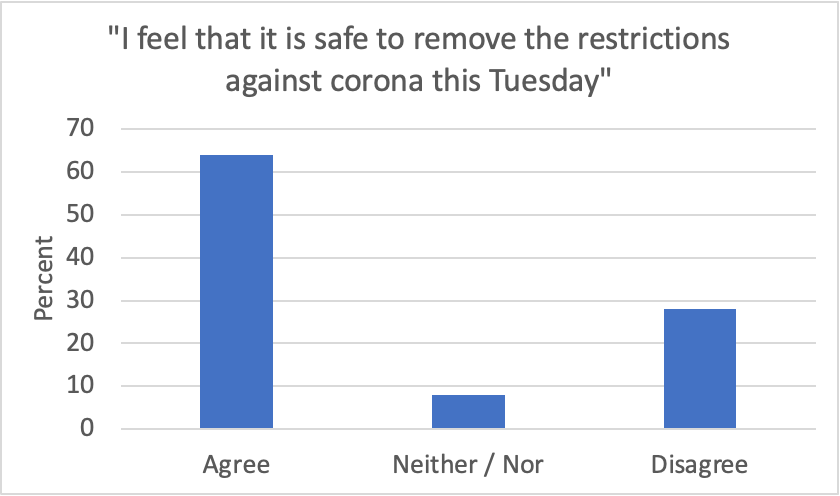
Also, in our @HopeProject_dk we have - every day - tracked feelings of societal threat (hope-project.dk/#/reports/Dans…). They have been dropping sharply the last month and are at the lowest point we have measured. (4/19) 
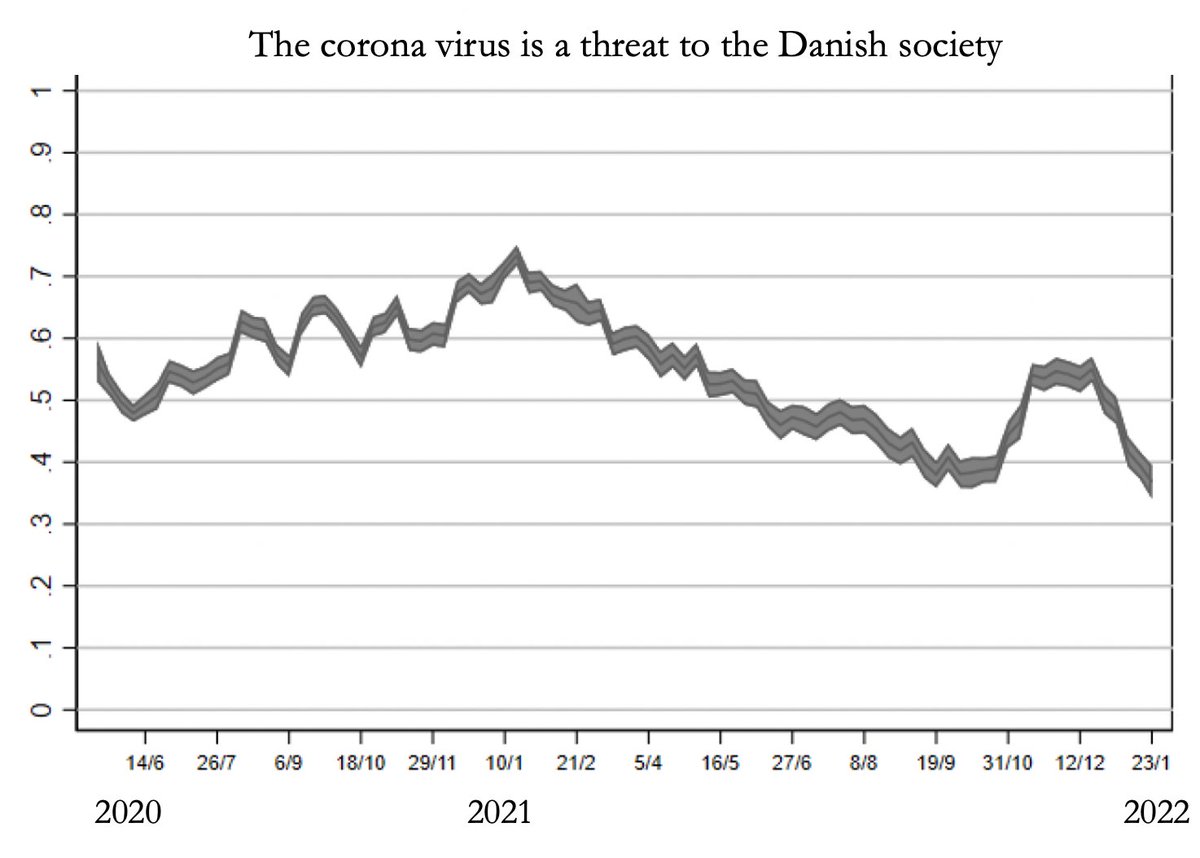
Throughout the pandemic, our data shows that the key worry of Danes is not their health but overwhelmed hospitals. In fact, in Jan '22 the average Dane was more worried about lockdowns than their own health. (5/19) 
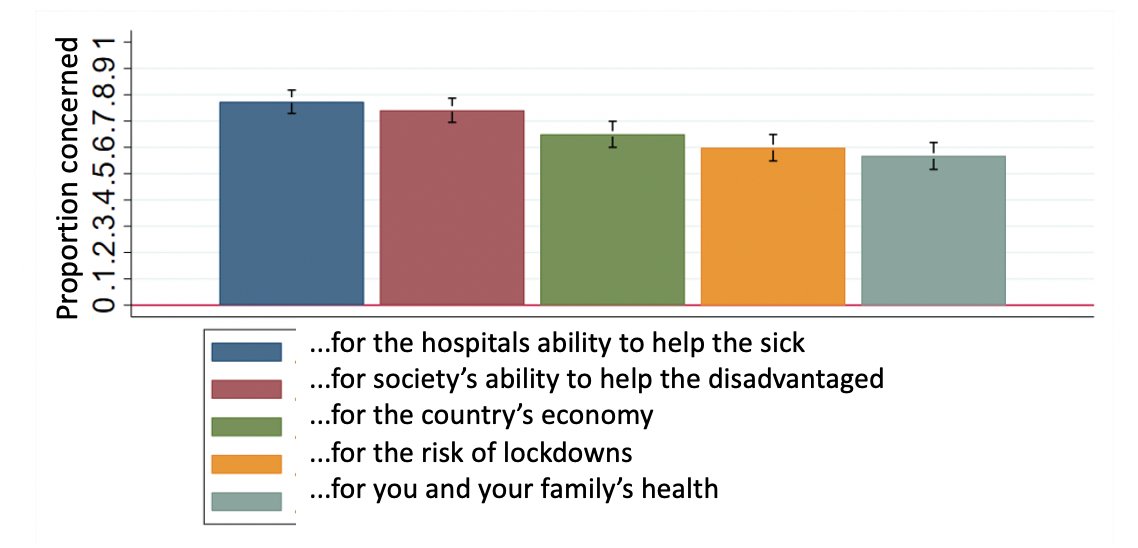
Why this lack of worry? Because Danes are highly vaccinated - and our data shows that their trust in the vaccines are high. 81 % of the entire population are vaccinated and 61 % of the population have received a booster vaccine. Vaccines are available from 5 years & up. (6/19)
Furthermore, virtually all infections in Denmark are now omicron. The combination of omicron and high booster coverage decouples infection and severity (ft.com/content/03aa46…). While there are high case counts, the pressure on hospitals is lower than in previous waves. (7/19) 
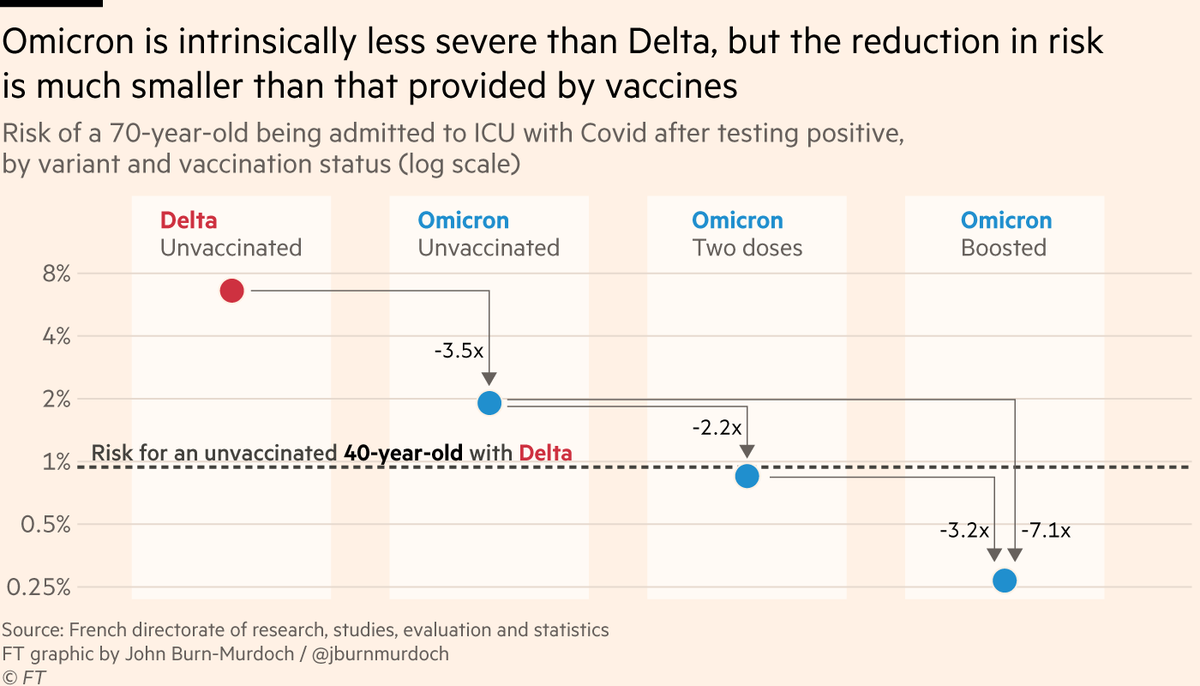
The clearest example of this is the drop in ICU (graph by @@mikaelmilhoj). According to @SSI_dk the drop is caused by the shift from delta to omicron infections (covid19.ssi.dk/-/media/arkiv/…). Current excess death is still driven by the delta wave that was crush by omicron. (8/19) 
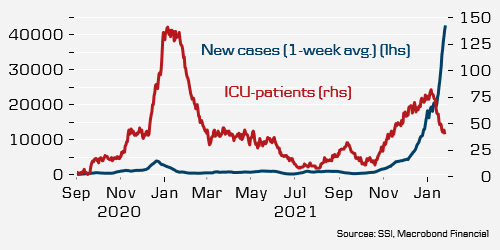
Even if many hospitalizations are short and incidental, a cause of concern is that omicron infections haven't topped. Yet, as seen from this graph (by @me_macro) , cases have followed the predicted trajectory and are expected to soon fall, if it is not already happening. (9/19) 
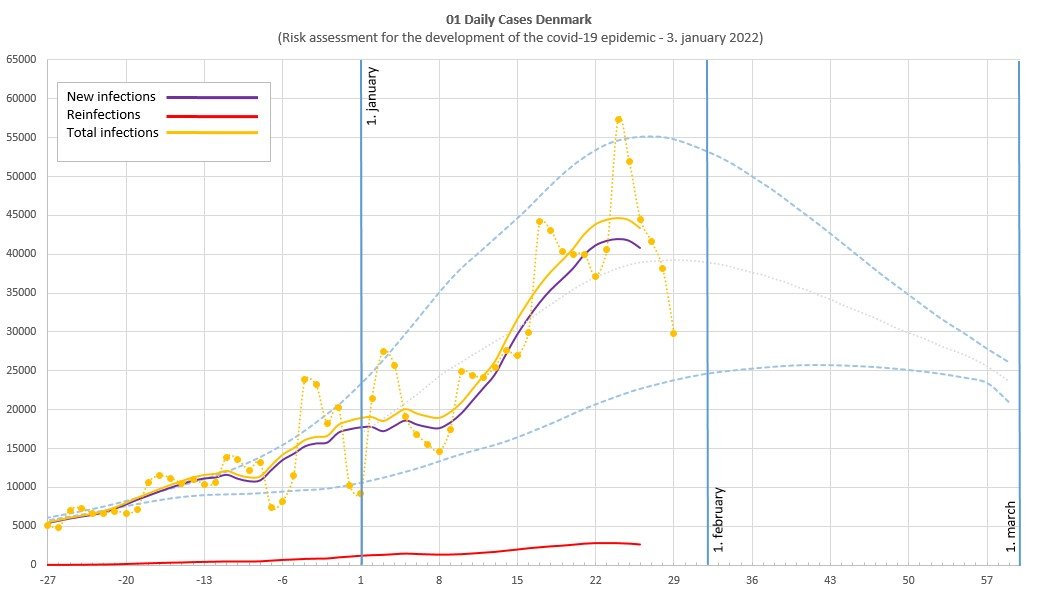
Another concern is long covid. Our data shows that ~50 % of Danes have such concerns. But vaccines decrease long covid too (medrxiv.org/content/10.110…). And Danish data suggest that long covid in kids is "rare & mainly of short duration" (link.springer.com/article/10.100…). (10/19)
Should Denmark wait until all concerns have been settled? Maybe. But waiting is not free. It has costs in terms of the economy, well-being and democratic rights. Balancing these is an explicit part of the Danish strategy: fm.dk/nyheder/nyheds…. (11/19)
Our research shows that these costs generate pandemic fatigue, which fuels distrust (psyarxiv.com/qjmct/). When well-being has been relatively high in Denmark it is, in part, because measures have been somewhat mild & because they have been relaxed when possible. (12/19) 
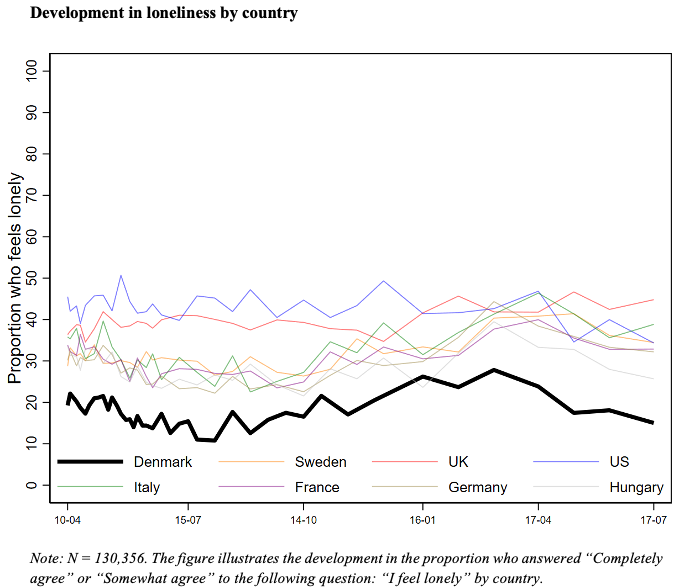
Pandemic management involves trade-offs and there is not one single legitimate strategy. Within the set of legitimate strategies, democratic agreement matters more than the exact nature of the trade-offs. (13/19)
There is indeed broad agreement. Even a majority of the elderly feels safe lifting restrictions (politiken.dk/indland/art859…). Our research shows they feel competent in avoiding infections (bit.ly/3gdbgGS). They have isolated over winter & will likely still do so. (14/19) 
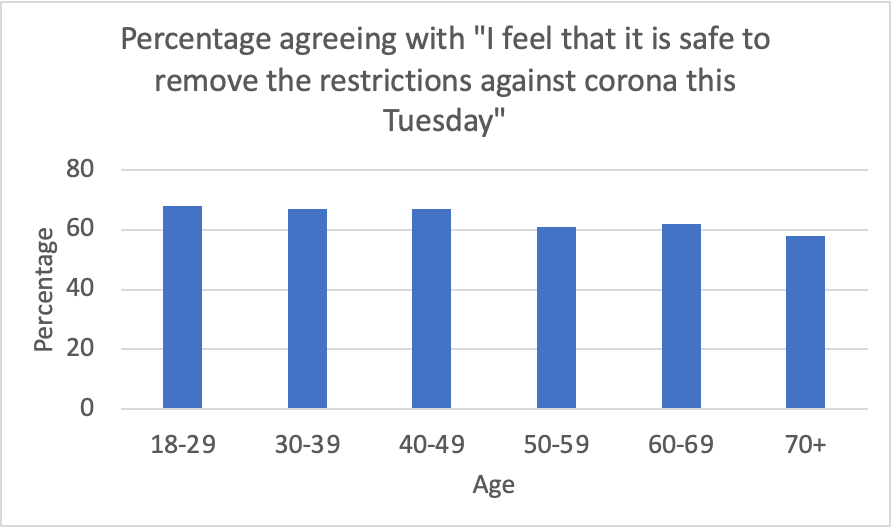
In fact, the elderly are not even very high in feelings of personal threat. The graph below shows developments in feelings of personal threat from covid across age groups. Those feeling slight increased threat are middle-aged people, who need to navigate high infection. (15/19) 
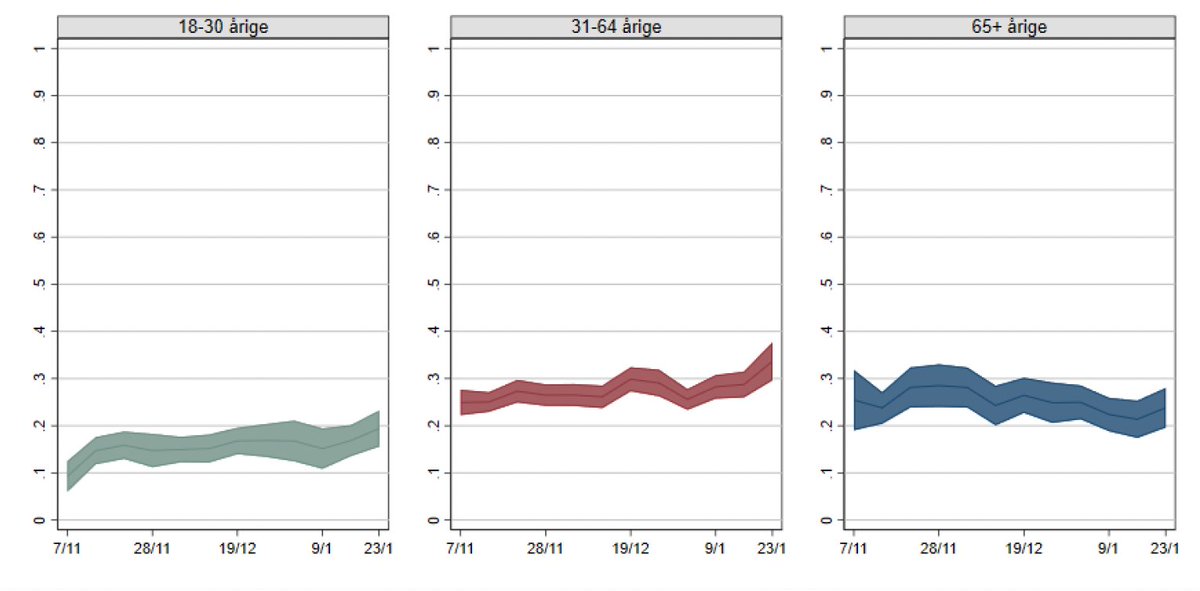
So, opening up imposes costs on some. Why do they accept it? My guess is: For the same reason that most young Danes have complied meticulously with restrictions: Trust in authorities and solidarity with society. These have been internationally high in Denmark. (16/19) 
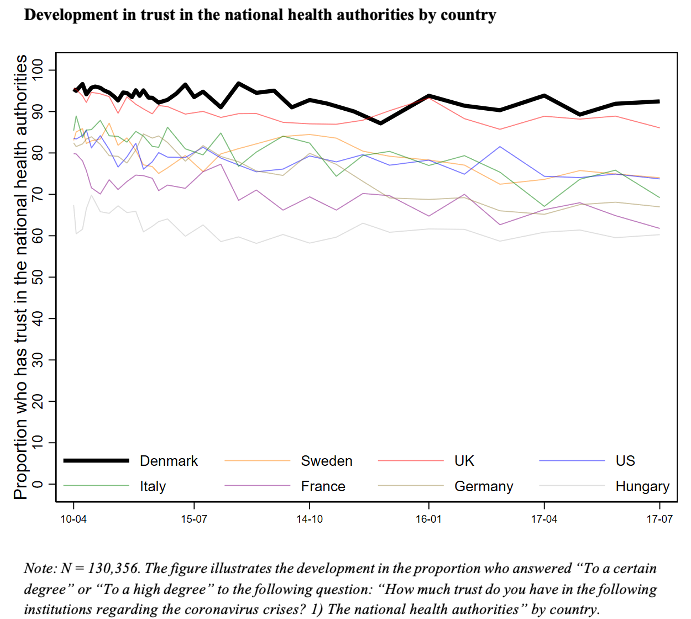
In return, there is a high motivation to help those at risk, despite that most do not feel that this is a threat to themselves. We see no drop in Danes' motivation to keep distance to the elderly and those at risk. People care and will continue to take precautions. (17/19) 
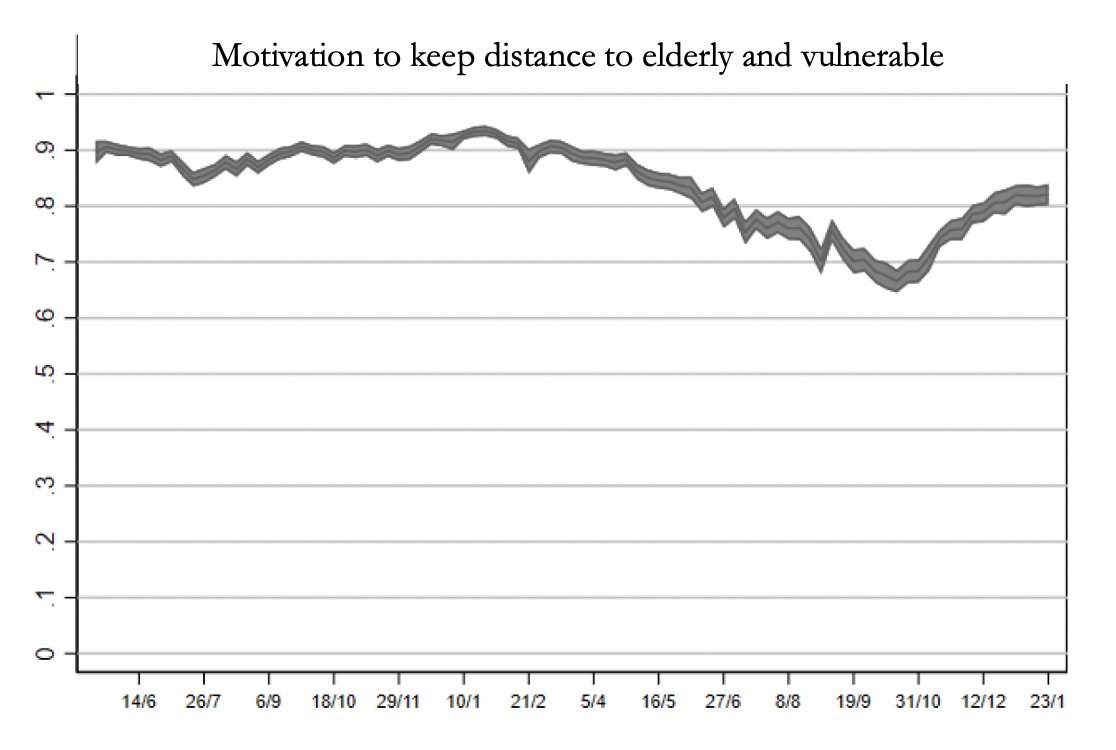
Should your country also turn the responsibility to people themselves? It depends on the epidemic & public preferences. But this shows how trust & solidarity entails an acceptance of costs, allowing society to act in agreement. Both when closing down & when opening up. (18/19)
Does this mean it is over? No, we have declassified corona before. But as lockdowns breed mistrust, it is prudent to relax measures when possible. If it is not over--if lockdowns are to be imposed again--societies will need as much trust & solidarity as they can muster. (19/19)
• • •
Missing some Tweet in this thread? You can try to
force a refresh


